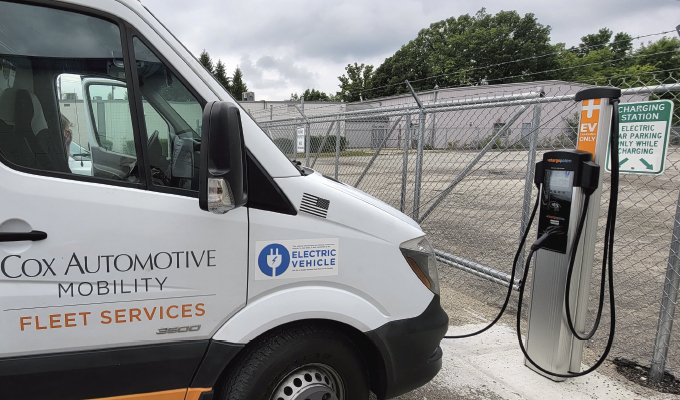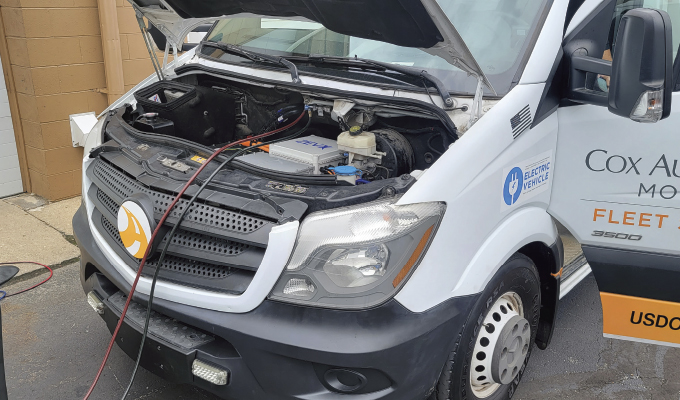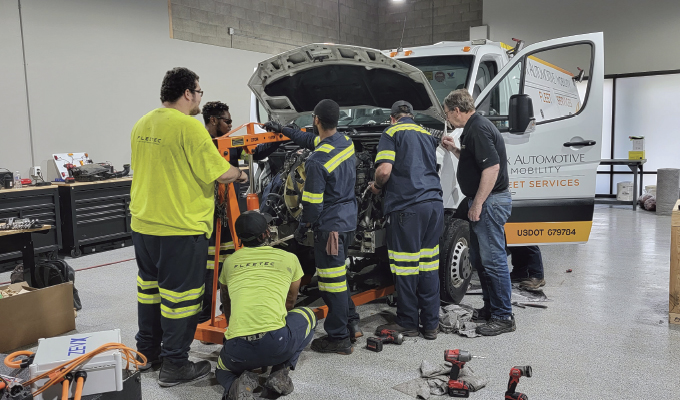In the realm of fleet maintenance education, FleeTec Academy, spearheaded by Terry Rivers, is breaking new ground with its diesel-to-EV (electric vehicles) conversion initiatives. Rivers is no stranger to the EV market, with has a career that has embraced EVs since the ‘90s, when he worked as an EV level 3 technician on electric Ford trucks. His commitment to environmental awareness is a professional stance and a personal creed fueled by a desire to leave a better world for his children.
FUTURE-PROOF SKILLS
Thirteen years ago, Rivers created FleeTec Academy, a hands-on residence training program designed to teach truck maintenance and repair skills from the ground up. Recognizing the role of proper vehicle maintenance in reducing carbon emissions, Rivers established a platform for in-depth automotive education. When Cox Automotive approached him to replicate his successful model, he embraced the opportunity, acknowledging the impact of well-maintained vehicles on environmental conservation.
Rivers illustrates this impact with an example: a diesel truck he witnessed just a few days ago running on seven cylinders instead of eight, which he notes can pollute the atmosphere 50 times more than if it were functioning correctly. This sense of responsibility is further underscored by his military background, where he learned to confront challenges head-on—a philosophy he has embedded into the ethos of FleeTec Academy.
The educational goals of FleeTec Academy, now expanded to include their diesel-to-EV conversion projects, aligns with the focus on green trucks and alternative fuels, providing a foundation for addressing the challenges posed by the shift towards electrification.

SUSTAINABLE CONVERSION MODEL
Rivers reveals the benefits of conversion versus buying new EVs with an illustration from FleeTec Academy’s own experience. The FleeTec team chose to convert an existing mobile diesel service truck after its motor failed after seven years of service. The decision was economically and environmentally sound; rather than spending $25,000 on a new diesel engine, they invested $45,000 to convert the vehicle to electric. The conversion stripped the vehicle down and transformed it into a 100 percent plug-in electric vehicle. Operating costs plummeted from several hundred dollars in diesel fuel each month to just $35 weekly for electric charging. The truck is expected to reach carbon neutrality in 2.5 years—an improvement over the 10 years it typically takes.
The converted vehicle requires little maintenance, saving on expenses like oil changes and oil filters, and enjoys increased uptime, offering more available workdays than its internal combustion engine counterpart.
During the conversion process, which took three days, the vehicle was not considered an EV and thus was not dangerous, requiring no special licenses to convert. Once the students installed the battery, it became a safe, full EV that was then re-certified and registered with the DMV. Notably, the students who performed the conversion signed their names on the battery, symbolizing their hands-on involvement and the educational impact of the project. This underpins the academy’s emphasis on practical, real-world training and showcases how re-purposing existing vehicles can be crucial in transitioning to a greener future.

EDUCATIONAL INNOVATION
FleeTec Academy’s approach to education is hands-on, as evidenced by their students converting a vehicle to electric as part of their curriculum. Rivers highlights the safety and simplicity of the process, noting that it does not require special certification to convert.
TRAINING NEW TECHNICIANS
FleeTec Academy has developed its own internal EV level 2 training program, administered on-site remotely through the FleeTec Honors branch of the academy, which brings advanced instruction directly to technicians. This approach minimizes downtime, eliminates the loss of revenue due to offsite technician training and travel, and ensures that technicians are versed in advanced mechanical, advanced electronics, and high-voltage systems.
ROAD AHEAD
The increase in public charging stations indicates that EVs are a growing part of our transportation landscape. According to an International Energy Agency report, at the end of 2022, there were 2.7 million public charging points worldwide, with over 900,000 installed in 2022, about a 55 percent increase from 2021. Rivers, who can now spend up to 80 percent of his workday on EV-related matters, proves that what seemed unlikely just a few years ago is an integral part of our present and future.
The academy are readying the workforce for a sustainable future and proving that we can make significant strides toward a cleaner environment, and a more efficient automotive industry with the right education and a forward-thinking mindset.
ABOUT THE AUTHOR
Jane Langland is the corporate communications manager at Cox Automotive Mobility.




